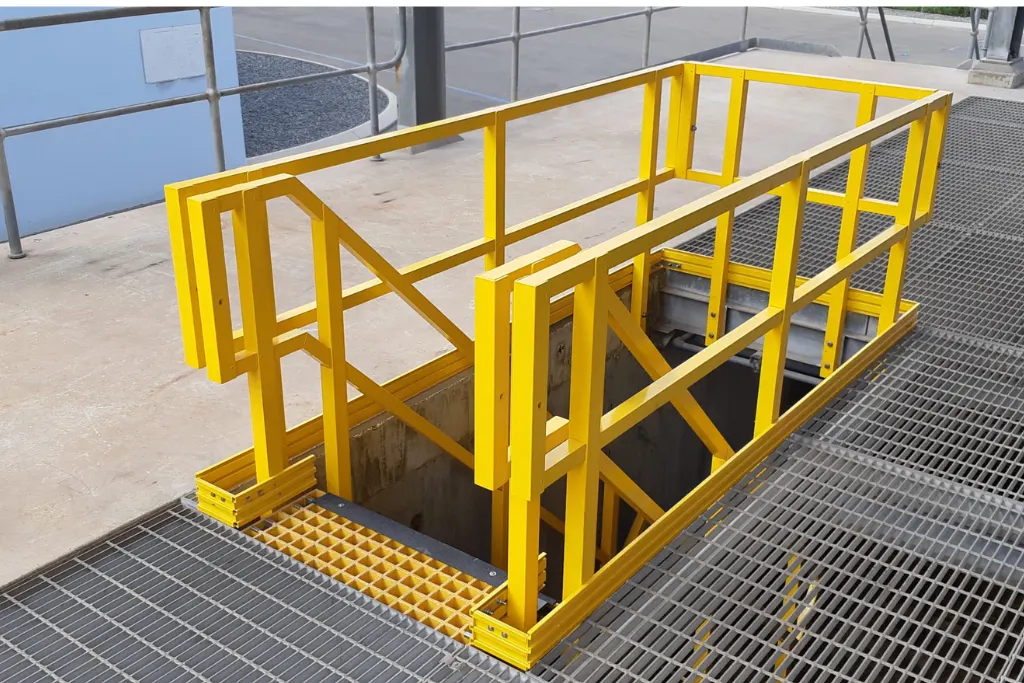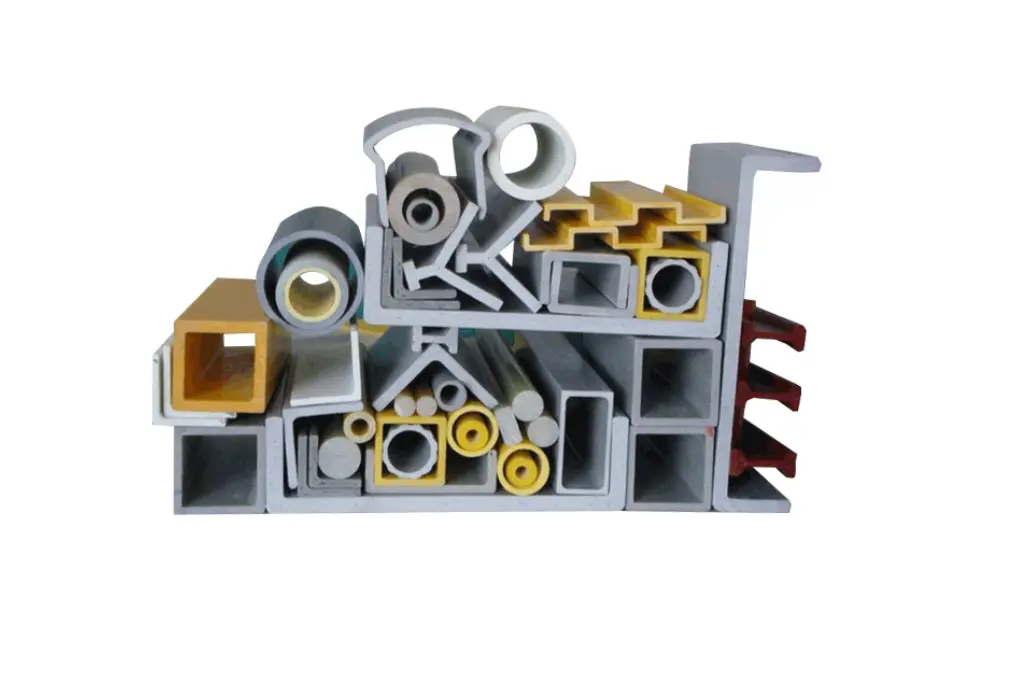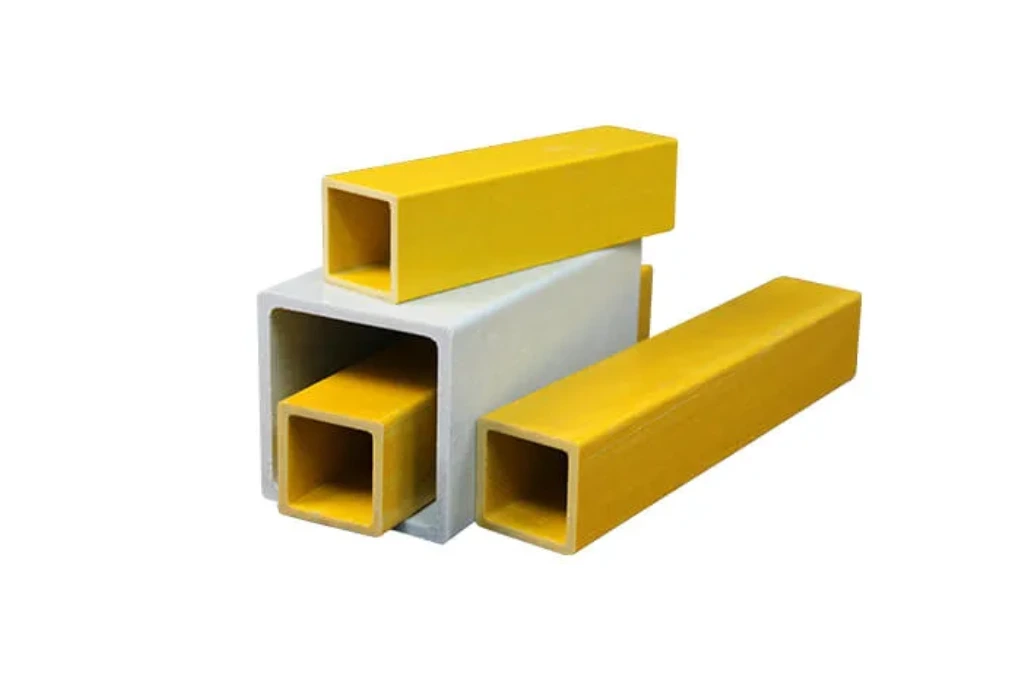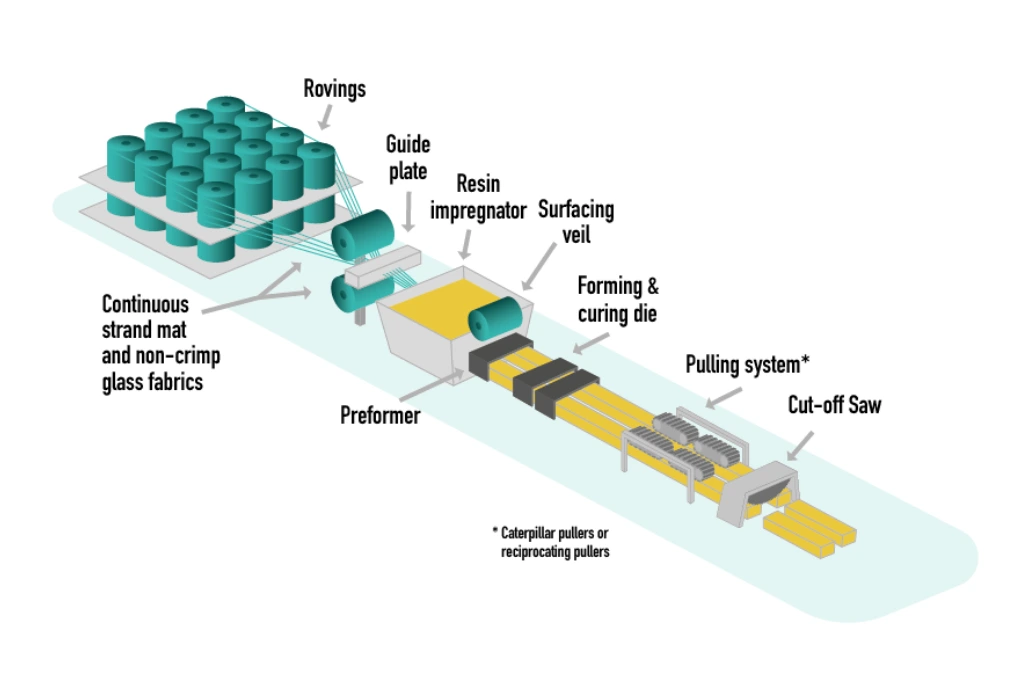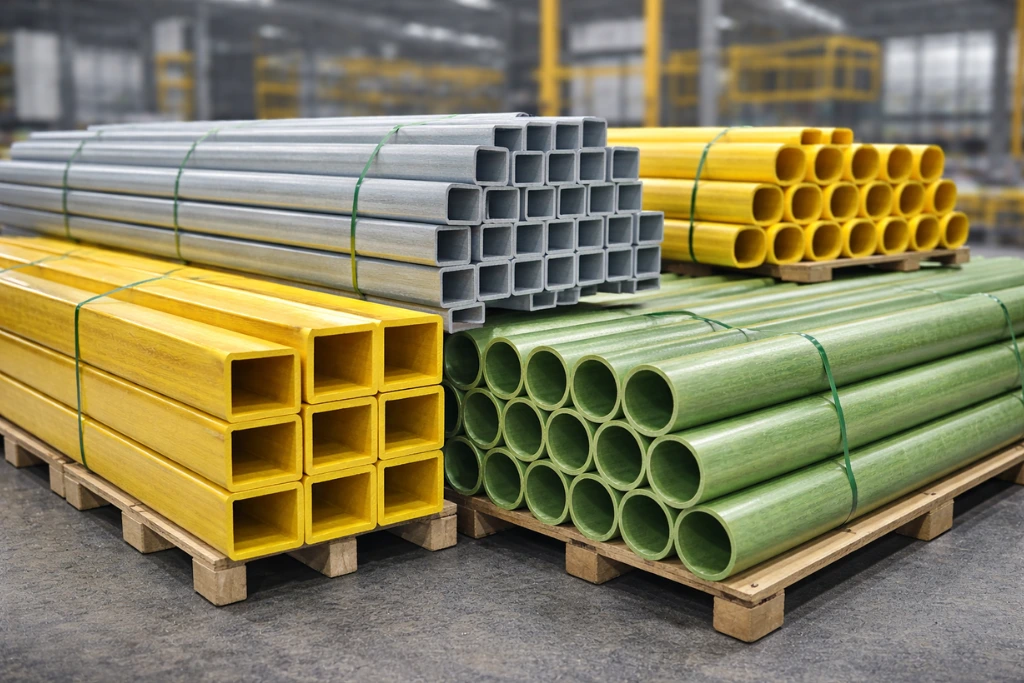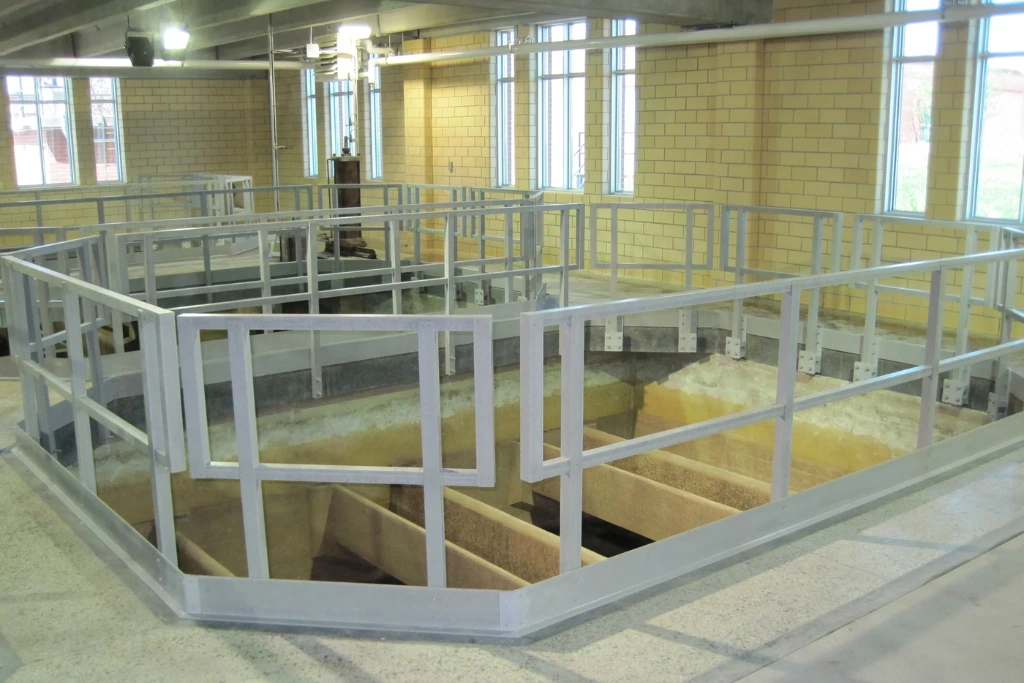Storing chemicals safely and cost-effectively is a top priority for industries like manufacturing, water treatment, and oil and gas. With ever-evolving safety standards and rising operational costs, choosing the right storage solution is crucial. Enter the FRP tank, a high-performance option for chemical storage that combines durability, safety, and cost-effectiveness.
FRP (Fiber Reinforced Plastic) tanks offer several advantages over traditional storage materials like steel or concrete. In this article, we’ll explore how FRP tanks improve safety in chemical storage and reduce maintenance costs, making them a preferred choice across industries.
What Are FRP Tanks?
FRP tanks are storage tanks made from Fiber Reinforced Plastic, a composite material consisting of a polymer matrix (usually polyester or vinyl ester resin) reinforced with fiberglass. This combination results in a highly durable, non-corrosive tank that is resistant to chemicals and environmental factors, making it ideal for a wide range of storage applications.
Due to these properties, FRP tanks have become widely used in industries that store chemicals, water, and other potentially corrosive substances. Let’s explore how these tanks enhance safety and reduce maintenance costs in chemical storage.
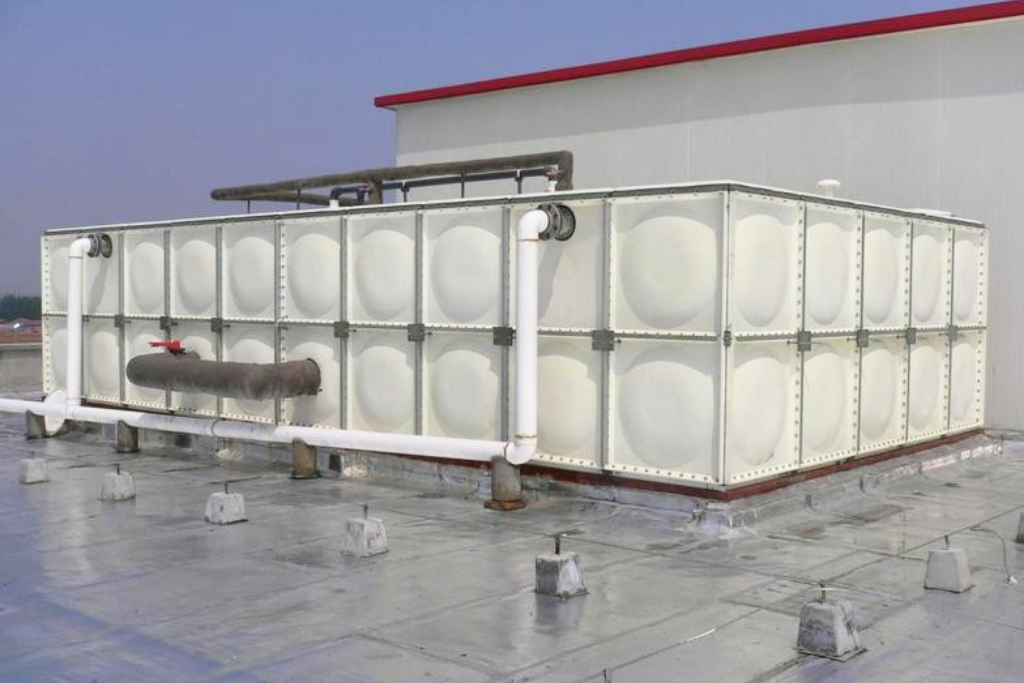
1. Exceptional Corrosion Resistance
One of the biggest challenges in chemical storage is preventing tank corrosion, which can lead to leaks, contamination, and even structural failure. Materials like steel are prone to corrosion, especially when exposed to acidic or caustic chemicals. FRP tanks, on the other hand, are inherently resistant to corrosion.
Why Corrosion Resistance Matters:
- Extended Lifespan: FRP tanks are designed to withstand exposure to harsh chemicals without degrading, extending the lifespan of the tank and reducing the frequency of replacements.
- Enhanced Safety: With no risk of corrosion-related leaks, FRP tanks provide a more secure storage solution, protecting employees and the surrounding environment.
- Lower Maintenance Costs: Since FRP tanks do not corrode, there’s no need for regular re-coating or extensive inspections, leading to significant savings on maintenance.
2. Chemical Compatibility and Versatility
FRP tanks are known for their compatibility with a wide range of chemicals, from acids and alkalis to solvents and wastewater. This versatility makes them ideal for industries where different types of chemicals require storage.
Why Chemical Compatibility Matters:
- Reduced Risk of Reactions: The non-reactive nature of FRP materials prevents unwanted reactions between the tank and the stored chemicals, which can be a safety hazard with metal tanks.
- Customization for Specific Chemicals: FRP tanks can be customized with different resin types (such as vinyl ester or polyester) to ensure maximum compatibility with specific chemicals. This flexibility enables industries to store various substances safely without having to invest in multiple types of tanks.
- Adaptability for Future Needs: With an FRP tank, businesses have more flexibility if their storage needs change or expand to include other chemicals, making it a versatile choice for evolving operations.
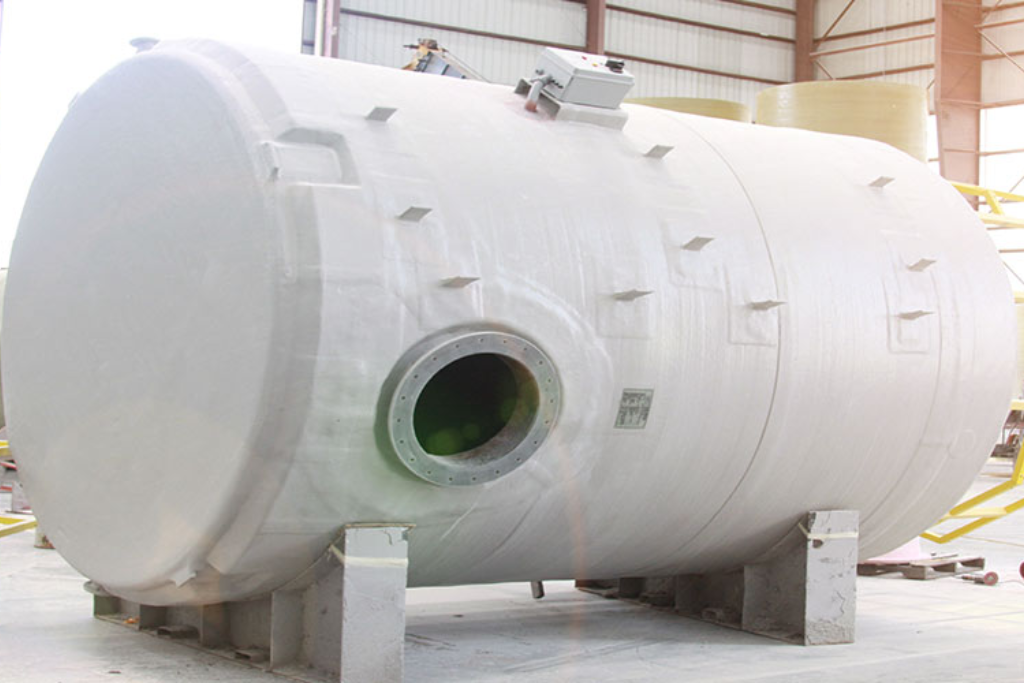
3. Lightweight Construction and Easy Installation
FRP tanks are much lighter than metal or concrete tanks, which simplifies both transport and installation. This lighter weight doesn’t compromise strength, as the fiberglass reinforcement in FRP tanks provides high durability.
Why Lightweight Construction Matters:
- Easy Transport and Installation: Lighter tanks are easier to move and install, which reduces labor costs and shortens setup times.
- Lower Structural Requirements: The reduced weight of FRP tanks means they don’t require as much structural support, allowing for easier placement in locations that may not support heavier materials.
- Reduced Handling Risks: During installation, a lighter tank is less prone to damage from handling, making FRP tanks safer and more cost-effective to install.
4. Enhanced Structural Integrity
FRP tanks are designed with strength in mind. The fiberglass reinforcement within the resin matrix provides excellent structural integrity, ensuring that the tanks can withstand the pressure of liquid storage without compromising safety.
Why Structural Integrity Matters:
- Reliable Performance Under Pressure: FRP tanks maintain their shape and structural strength under the weight and pressure of stored chemicals, ensuring consistent performance.
- Resistance to Cracks and Punctures: The reinforced fiberglass structure makes FRP tanks highly resistant to cracking or punctures, which is essential in high-stress environments.
- Protection Against Environmental Factors: FRP tanks can endure extreme temperatures and outdoor conditions, offering long-term stability and durability, which reduces the need for repairs or replacements.
5. Low Maintenance Requirements
One of the primary benefits of FRP tanks is their low maintenance. Unlike steel tanks that require regular inspections, rust-proofing, and painting, FRP tanks need minimal upkeep.
Why Low Maintenance Matters:
- Cost Savings: Without the need for frequent coatings, inspections, and repairs, businesses can significantly reduce ongoing maintenance expenses.
- Long-Term Reliability: FRP tanks are built to last with minimal intervention, making them a low-maintenance solution that can provide reliable chemical storage over many years.
- Reduced Downtime: Less maintenance means less downtime, allowing companies to operate more efficiently without frequent tank-related interruptions.
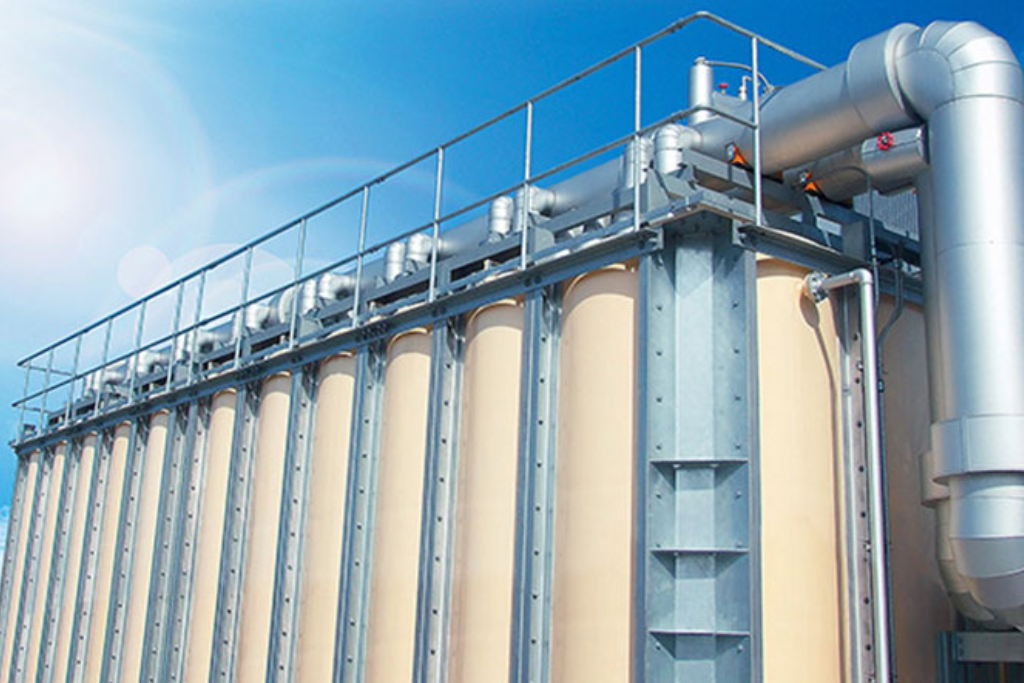
6. Customizable Designs for Specific Needs
FRP tanks can be manufactured in a range of sizes and shapes, tailored to the specific requirements of a project. This customization can include specifications like wall thickness, tank size, resin type, and additional coatings.
Why Customization Matters:
- Optimized for Safety and Efficiency: Custom FRP tanks can be designed to suit the exact volume and type of chemical being stored, enhancing safety and maximizing storage capacity.
- Fit for Unique Storage Conditions: Some storage environments have specific needs, like extra-thick walls for high-pressure chemicals or specialized coatings. FRP tanks can be tailored to meet these unique demands.
- Flexibility in Placement: Custom dimensions allow FRP tanks to be placed in a variety of settings, from confined spaces to large-scale industrial facilities, ensuring that they work well within existing structures.
7. Environmentally Friendly Option
FRP tanks offer environmental benefits, aligning with sustainable practices and reducing the overall carbon footprint of chemical storage. Their long lifespan and minimal maintenance requirements reduce the need for frequent replacements, saving on material and energy resources.
Why Environmental Benefits Matter:
- Waste Reduction: The long-lasting nature of FRP tanks means fewer tanks are disposed of over time, reducing waste.
- Less Resource-Intensive: With minimal need for coatings, reapplications, and replacements, FRP tanks consume fewer resources, making them a sustainable choice for companies looking to lower their environmental impact.
- Enhanced Workplace Safety: FRP tanks improve overall environmental safety by reducing the risk of leaks or chemical spills, which could harm surrounding ecosystems.
8. Cost Savings on a Long-Term Basis
The combined benefits of durability, low maintenance, and corrosion resistance make FRP tanks a cost-effective investment. While the initial cost of FRP tanks may be higher than some other materials, the long-term savings outweigh these upfront costs.
Why Cost Savings Matter:
- Reduced Maintenance and Repair Costs: The low maintenance requirements mean fewer expenses related to repairs, coatings, and rust prevention.
- Fewer Replacements: FRP tanks are long-lasting, so companies don’t have to replace them as frequently as other materials, resulting in long-term savings.
- Enhanced Operational Efficiency: Less downtime and reduced maintenance keep operations running smoothly, preventing costly interruptions.
Conclusion: Why Choose FRP Tanks for Chemical Storage?
When it comes to safe and cost-effective chemical storage, FRP tanks offer unmatched benefits. Their corrosion resistance, chemical compatibility, structural integrity, and low maintenance make them a reliable choice across industries. From reducing maintenance costs to ensuring the safety of employees and the environment, FRP tanks provide an efficient, long-lasting solution for chemical storage.
If you’re looking for high-quality FRP tanks tailored to your specific needs, consider partnering with an experienced manufacturer like THE FRONT. With decades of expertise in composite materials, THE FRONT offers customizable FRP tanks designed to meet the unique requirements of chemical storage. Their commitment to safety, quality, and innovation makes them a trusted partner for businesses seeking dependable and durable storage solutions. Explore THE FRONT’s range of FRP tanks to see how they can help enhance your storage capabilities.

